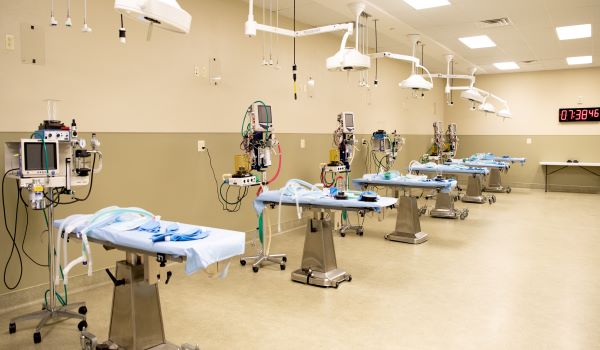The Importance of Cadaver Labs Amidst an Evolving Digital World in 2024
In a landscape increasingly dominated by digital technologies like AR/VR simulations or artificial intelligence, the relevance of traditional...
3 min read
Abby Crimm : September 9, 2020 8:00:00 AM PDT

During times of high stress and remote working, the emotional intelligence and creativity of people in healthcare leadership roles have never been more valuable.
Broad claims have been circulating about how female leadership has positively influenced the reaction to and handling of COVID-19 across the world.

While gender-based conclusions about world leaders during the pandemic turned out to be unfounded, it does make sense on an individual level that the leadership qualities that come more naturally to women are of especially good use during this time of virtual interaction and care.
I’ll be honest—I don’t like labeling leadership qualities as “female” or “male.” People aren’t born successful leaders; some skills come naturally and others we must work to develop. This is true for everyone regardless of sex.
It’s also true that some personality types and skills are more frequently found in women or men, but that doesn’t mean women shouldn’t aspire to learn leadership qualities that are considered more masculine and vice versa.
For example, here at Viticus Group, 3 out of the 4 members of our executive team are female. However, each executive represents a different behavioral category according to his or her DISC personality test profile. So even among our female leaders, communication and leadership styles are very diverse. That doesn’t mean that one style is less “female” than others.

So when I say female leadership, I mean the effective leadership qualities that come more naturally to women in general, allowing many female healthcare professionals to excel in crises.
Certain leadership styles have been able to shine in healthcare teams having to adjust to working under different circumstances. People who possess these qualities have an easier time helping their teams find new ways to connect meaningfully with colleagues and patients in virtual settings or when stress runs high. They know how to listen and respond in a way that addresses both spoken and unspoken concerns.
This time of crisis may prompt a shift in the kinds of qualities people consider ideal for healthcare leadership positions, seeking attributes common to female leaders more often. Or, better yet, organizations will recognize that a healthy combination of leadership styles is best for overall success.
People may have been undervaluing these leadership qualities in the past, but now they are a hot commodity:
When stress, anxiety, and financial hardship become the usual state of affairs, people want their team members and healthcare providers to focus on people rather than processes, show compassion rather than impatience, and be honest about shortcomings and needs rather than put numbers and business first.
Women (and men) who have these characteristics are uniquely equipped to handle some of the problems healthcare businesses face today, and healthcare decision-makers take notice.
The feminine leadership qualities above, however, are not the be-all, end-all. Just as needed are their counterparts: boldness, directness, and results-driven communication.
The pandemic may be an opportunity for female leadership to rise and show its unique strengths, but that doesn’t mean female leaders can’t be inspired to add to their leadership tool belt.
Don’t wait too long to voice your ideas or make your opinion known. It’s great to make others feel like their thoughts are valued, but your team needs you to be assertive at times, too.
Being risk-averse is good a lot of the time, but be willing to implement something brand new that you think will make a positive difference. There is so much good to be done and the current situation is so new, organizations and patients need creative solutions.
Being sensitive to others’ needs and emotions is an asset (especially in healthcare), but one common mistake is not being clear or concise in the way you communicate. Find a balance between taking everyone’s perspective into account and cutting out the fluff.
Go get’em, ladies.
Learn More!
Subscribe to our YouTube channel or check out our Resource Library full of great podcasts, videos, and digital downloads!
Disclaimer
Content may contain advertising and sponsorships. Advertisers and sponsors are responsible for ensuring that material submitted for inclusion is accurate and complies with applicable laws. We are not responsible for the illegality of any error, inaccuracy, or problem in the advertiser’s or sponsor’s materials.
Advertising material and/or opinions are not a reflection on Viticus Group.

In a landscape increasingly dominated by digital technologies like AR/VR simulations or artificial intelligence, the relevance of traditional...
.jpg)
Healthcare administration students and young professionals get answers about what will set them apart in this competitive field.

The effect continuing education has on healthcare providers, especially during a pandemic, is astronomical. If you don’t believe me, just listen to...